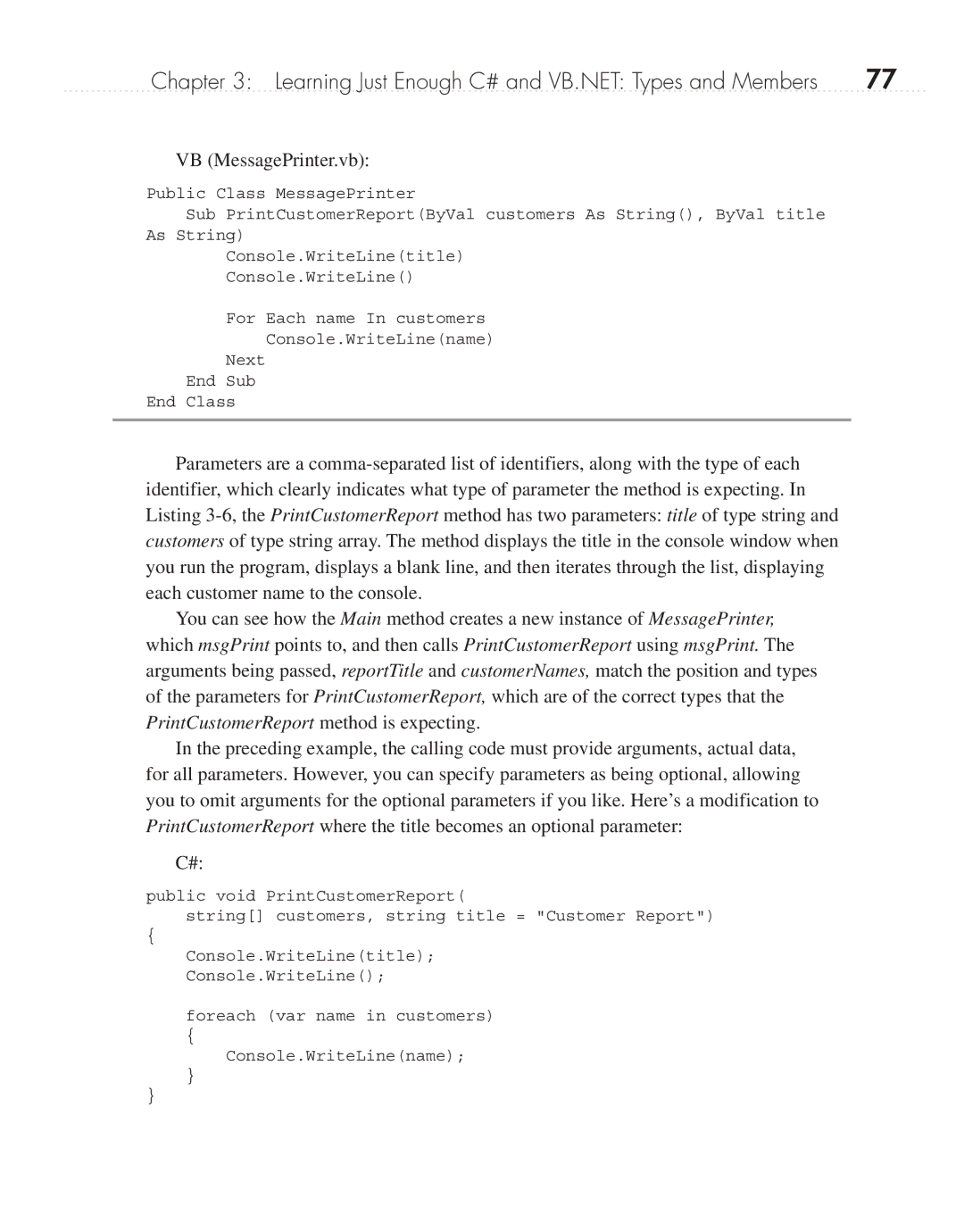
Chapter 3: Learning Just Enough C# and VB.NET: Types and Members | 77 |
VB (MessagePrinter.vb):
Public Class MessagePrinter
Sub PrintCustomerReport(ByVal customers As String(), ByVal title
As String)
Console.WriteLine(title)
Console.WriteLine()
For Each name In customers
Console.WriteLine(name)
Next
End Sub
End Class
Parameters are a
You can see how the Main method creates a new instance of MessagePrinter, which msgPrint points to, and then calls PrintCustomerReport using msgPrint. The arguments being passed, reportTitle and customerNames, match the position and types of the parameters for PrintCustomerReport, which are of the correct types that the PrintCustomerReport method is expecting.
In the preceding example, the calling code must provide arguments, actual data, for all parameters. However, you can specify parameters as being optional, allowing you to omit arguments for the optional parameters if you like. Here’s a modification to PrintCustomerReport where the title becomes an optional parameter:
C#:
public void PrintCustomerReport(
string[] customers, string title = "Customer Report")
{
Console.WriteLine(title);
Console.WriteLine();
foreach (var name in customers)
{
Console.WriteLine(name);
}
}
